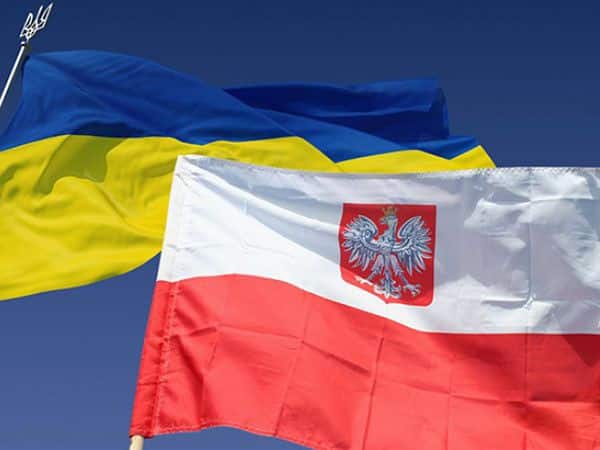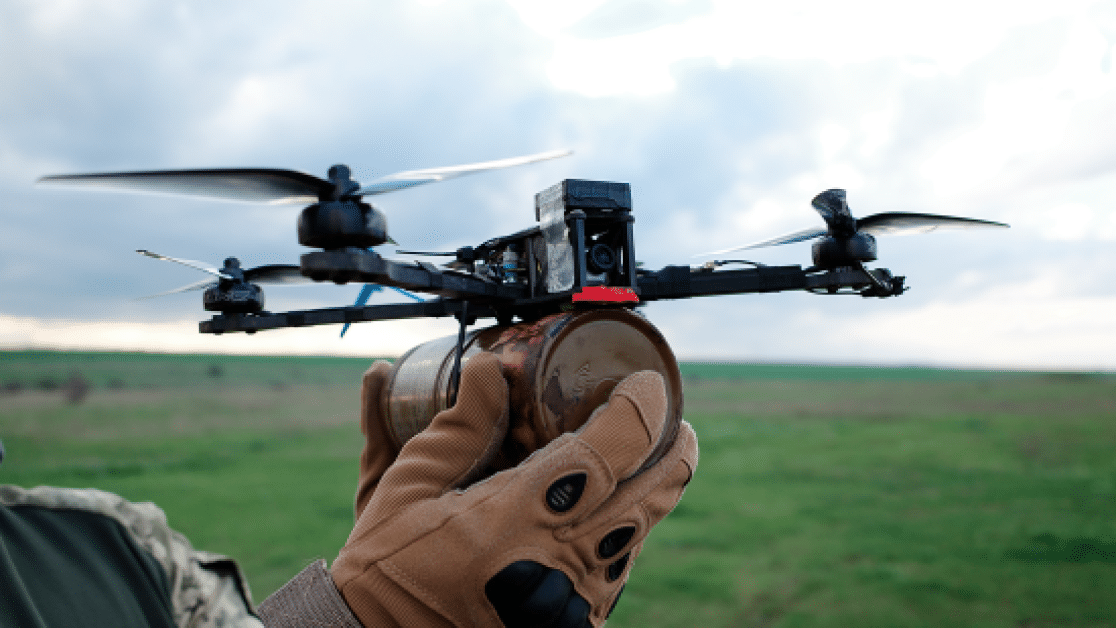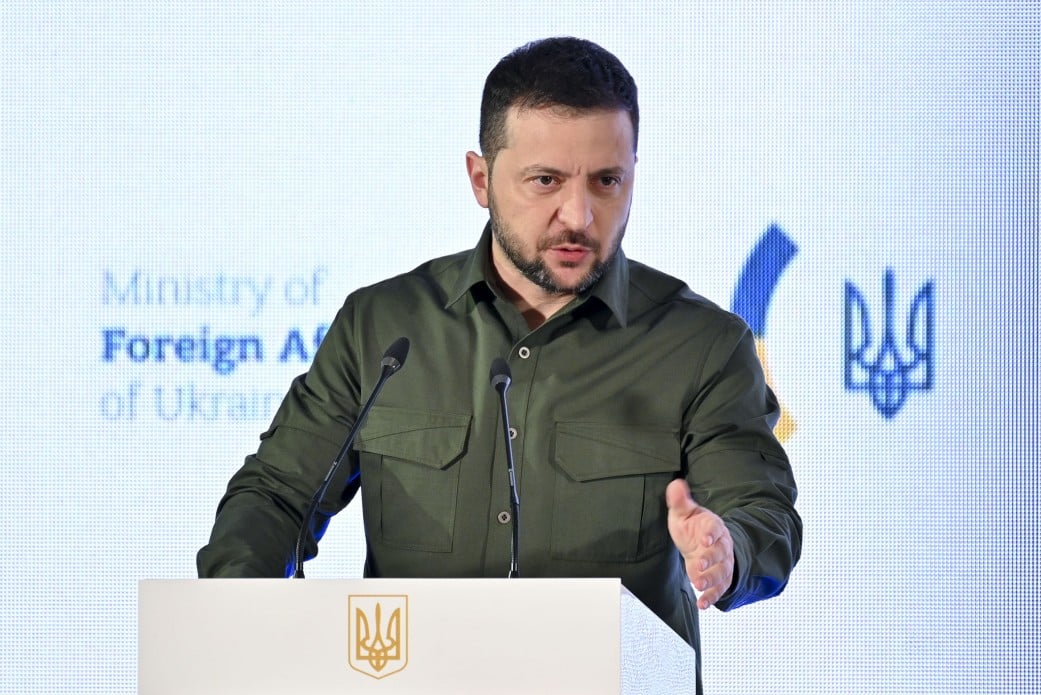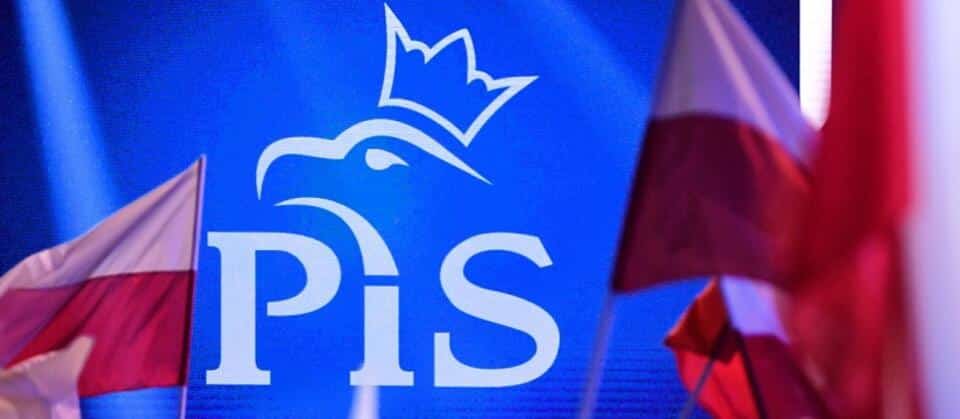Table of Contents
Before February 24, 2022, a well-known European wrote to me, who then felt the same as many good people in Europe — despair and powerlessness in the face of the approaching darkness. He proposed a plan: the President of Ukraine should urgently address the nation with three messages. The first: war must be avoided at any cost, including at the cost of “painful concessions.” The second: Ukrainians and Russians are, after all, brothers who must come to an agreement. The third: Ukrainians and Russians have a common enemy, and it is not Putin or Zelenskyy, but… global warming.
See also: War for the Arctic or energy sabotage: why Russian spies have become more active in Norway
Awareness of the general danger of global catastrophe should, in his understanding, open people’s eyes and show how insignificant all the differences between them are. In this plan, as in a mirror, both the naivety of Europe, and its long-standing habit of living in its own separate reality were reflected. A reality that fell apart like a house of cards at dawn on February 24, 2022.
I will not quote what I wrote to him in response. Moreover, he is really a good, sincere person and during the months of the war, he helped many Ukrainian refugees. It is not his fault that in 2022 the West woke up in a new, harsher reality, having only a set of naive cliches and the belief that freedom is as obvious as a good espresso and a croissant in the morning.
See also: Putin raised the stakes: how Japan helps Ukraine
Why the West was not ready
On February 24, it became obvious that Europe had been living an illusion for a long time, from which this war partly grew. Living an illusion is convenient, but, in the end, it is almost always fatal. Ukraine cannot afford this luxury. In particular, it is important to realize the full degree of unpreparedness with which the West met this war, and in which it still remains partly. First of all, it is fundamentally wrong to see this unpreparedness only as the venality of the Western elites, which is successfully used by Putin. Venality, of course, exists to some extent, but it is only one side of the problem.
The second is that for at least three decades, the West has been sincerely cultivating the belief that any enemy can be turned into a friend by embracing it and starting to trade with him and engage in dialogue. Especially if this enemy is in the neighborhood, in Europe, and is intertwined with it in cultural, economic, and historical terms. Especially if friendship with him brings considerable dividends.
In the eyes of many representatives of Western civilization, every enemy is simply a friend who was not loved enough, not always heard, and not fully understood. In this coordinate system, if you have an enemy suddenly, think first of all about what you did wrong. Western political correctness dictates that the real enemy can be either domestic or collective — like global warming or famine in Africa. Having a specific, fierce and unambiguous enemy, with names and surnames (such as the current Putin regime), is extremely uncomfortable for most modern Europeans.
Therefore, it is possible that immediately after the end of the war (even if, according to its shameful results, Putin remains in power), the image of Russia as an enemy will slowly begin to disappear. And the caravans of harbingers of peace, prophets of free trade and preachers of the outstretched hand of friendship may once again reach Moscow. No, it will not be a total “betrayal”. The shock of this war was too great, and Putin took advantage of Europe’s naivety too cynically. The sediment will remain. But the ideology and nature of Europe will not fundamentally change.
Collective blindness instead of collective enlightenment
In fact, this is a bright and good ideology. What could be a better panacea for the hate-filled European history than a simultaneous rejection of the image of the enemy and hate, even if sometimes deserved? The only problem is that this recipe is for the 21st century, which, as we can see, has not come for everyone. Russia, for example, is stuck in the 20th century. Refusing to find an enemy doesn’t work when your neighbor has already found one, and that enemy is you. That is why in the era of Putinism, Western complacency so often reeks of hypocrisy.
It is enough to look at Pope Francis and listen to his fiery, uncompromising condemnation of the wars in Syria and Ukraine — while being unable to say out loud who started and wages these wars. Listening to the Pope, one gets the impression that Aleppo was bombed by the spiritlessness of modern society, and the infantile logic of weapons pulled the trigger in Bucha [the Kyiv region, Ukraine – ed]. Politically correct, beautiful and hypocritical. Christ, it seems, would hardly approve of it. Perhaps he would even say something direct and undiplomatic, like: “Let your word be “yes, yes”, “no, no”, and everything above that is from the evil one”.
The Pope’s sermon is actually a voluntary self-blindness in order not to confront the imperfect world and not to make difficult decisions that this world demands from you. In addition, blindness is darkness, and in darkness, it is easier to compromise with a conscience. Searching for the truth by feeling, somewhere in the middle, is often easier and more comfortable than just opening your eyes and calling black — black.
More than one generation of the collective West grew up on this approach to life. But now 2022 has come, and the pink soul of the collective Western liberal is entangled in the black shaggy beard of the collective Russian obscurantist. The barbaric, savage, unthinkable for the modern era attack of one country on another has actually exposed many sins in Western societies, about which the Pope, unfortunately, is silent. For example, the naivety of one part of them and the venality of the other. This is certainly not a memory that the world will cherish, but not one which is easy to forget. Will it be a shock that will return, for example, Europeans to the sinful earth and make them grow up at least in relations with Russia? In general, probably yes — the only question is the timing.
See also: Will Turkey be able to take advantage of the weakening of Russia?
“Change of times”
On February 27, 2022, German Federal Chancellor Olaf Scholz, speaking before the Bundestag, proclaimed the so-called Zeitenwende — literally translated as “change of times”. The essence was that the time of Germany’s unchanging attachment to the partnership with Russia is over, the page has been turned, Putin’s Russia has decided to be an enemy, and in order to meet this challenge with dignity, Germany will need strength – moral, military, economic. The speech sounded so decisive that it seemed: the era of pink clouds in Europe is really over, Europe is ready to see the truth, even if it is not “in the middle”, and to act decisively in accordance with this understanding.
Well, the energy policy of Germany (and most EU countries) has indeed shown that the change of times has not yet come but is coming. Floating terminals for liquefied natural gas began to grow like mushrooms after the rain, joint energy projects with Russia fell into oblivion, half-empty underground storage facilities were filled, and “northern streams” sank out of sight into the abyss of the Baltic Sea.
This is on the one hand. And on the other hand, the wonderful German “Gepard” [self-propelled anti-aircraft gun – ed. ] turned out to be quite slow animals, and the “Leopard” [German battle tanks – ed.] generally got lost in the jungle of German political schedules. German weapons were regularly promised, but they never came. The hopes for German leadership in Europe melted away along with hopes for German weapons. And without German leadership, it will be a completely different Europe.
See also: Anatomy of rashizm: how the undefeated totalitarian legacy became a countdown to Putin’s Russia
At a certain stage, Germany seemed to be afraid of its own bold words. But it could not help but see how much, for example, neighboring Poland was ahead of it in the main issue of European politics. The Germans could not help but understand how bad they look in this situation. After all, everyone remembers that it was they who helped Putin turn from a small worthless man who accidentally led Russia to a small worthless man who destroyed the peace in Europe.
As a result of these, without exaggeration, historical torments, anti-aircraft tanks “Gepard”, though belatedly, but finally “reached” Ukraine, and super-modern anti-missile systems IRIS-T, although in autumn, but finally “blossomed”. It is said if the active phase of the war continues, even “Leopard” tanks may appear at the front.
In October, Federal President Steinmeier delivered a speech even more fiery than Scholz’s in February. His call for Germans to be prepared for difficult times, and his ability to admit how wrong the policy towards Russia was, showed Steinmeier in a new light altogether. He seems to have become the only one of the leading politicians in Europe who did not lack the conscience to admit the mistakes for which we have to pay such a high price today.
In other words, not everything is clear with this “change of times”. On the eve of the winter of 2022/23, Germany got a new chance to show that it still has the declared strength and the process of Europe’s farewell to such a familiar and cozy pink cloud has begun. In the face of a barbaric attempt to throw the world back thirty years (or maybe even three hundred), Germany can still learn to be strong. And if it can, so can the rest of Europe.
What will happen after Kherson
In a certain sense, Berlin, Washington, and other capitals today look questioningly towards the main political force on the European continent — the Armed Forces of Ukraine. After all, we live in that truly historical moment, when the courage and heroism of soldiers, and not the prudence of cowardly politicians, decide the fate of the continent.
The decisive moment of the war is coming. Ukraine’s liberation of Kherson, the approach of winter and Russia’s inability to turn the tide of war on other fronts give the West and the Kremlin the feeling that a pause is possible, which will turn into negotiations, which will turn into a compromise, which will turn into some kind of peace. This is why there is such a feeling of “heartbreak” in the air in the West. Hence, there is a flow of hints about the desirability of negotiations. Hence, there is Russia’s sudden readiness to sit down at the negotiating table without a reservation and start talking about peace.
One of my friends on Facebook even described its possible features: Ukraine takes Kherson, and receives electricity from Zaporizhzhia Nuclear Power Plant. The destruction of the electrical infrastructure stops. Ukraine winters safely. The West sends it a large financial aid package, as well as possibly Russian assets frozen in the West in whole or in part. In exchange, a new dividing line is drawn, similar to the one that divided Korea. With the preservation and consolidation of Russian control over most of the currently occupied Ukrainian regions, including Crimea. This is all, of course, tomorrow. But today… Today, the Armed Forces of Ukraine must stop. I would not rule out that such a plan is really in the minds of many in the West and, quite possibly, in the Kremlin. No matter how absurd it sounds to us in Ukraine.
See also: Iranian kamikaze drones Arash-2 – what is known about them, their capabilities and characteristics
The idea of feeding Ukrainian lands to the Moscow crocodile for the sake of world peace has not yet died. And the illusion of invincibility of nuclear Russia — too. For some time now, the presidents, prime ministers and their advisers from all over the world jumping up and down, offering Ukraine mediation services to “achieving peace”. However, the Ukrainian soldier, who has his own and, as experience has shown, quite an effective method of achieving peace is an alternative for this. It is to drive Russian troops out of the Ukrainian land. And the people of Ukraine support this method, no matter how cold the upcoming winter will be.
The main victory will be the building of a new Ukraine
Choosing this path now — a difficult, bloody, cold path to the liberation of our lands and people — we must understand that in the next stage of the war it will be in some aspects more difficult than in the era “before Kherson”. By rejecting the temptation of a quick peace, we challenge not only Russia but also many outside Ukraine, those who are used to embracing other people’s enemies and appeasing them at someone else’s expense for the sake of world peace. After this boundary, we will no longer have such ardent support of the collective West and, perhaps, deaf disapproval of the collective non-West — Africa, Asia, and Latin America. Serious efforts of Ukrainian diplomacy will be needed for dialogue with the global “aggressively silent majority”.
But the main thing is that we must understand that, having lost the war, Putin will do everything to turn the Ukrainian economy into ruin, and it will take decades to rebuild the new one.
No, no one will stop us if we do not stop ourselves. The support of the West will not be exhausted, as evidenced by the positive results of the mid-term congressional elections for President Biden, which herald, among other things, the beginning of the end of Trumpism in the United States. But there may be less enthusiasm and compassion, as well as weapons and financial aid to keep the economy afloat. Putin will not be able to turn this war into a national and sacred one, but he will be able to drive new hordes of wordless slaves to slaughter in Ukraine for some time.
Also, we should not be too enamored with hopes for a new “Marshall Plan”, similar to the one that was once for Germany. It then rose from the ashes not only due to American aid (although it was an important factor), but due to the selfless work of an entire generation of Germans. Are we ready to become a “great generation”, which will first go to the victorious end in this liberation war, and then will not be afraid of post-war difficulties, will not go into emigration, but will roll up its sleeves, forget the old quarrels and build a new Ukraine brick by brick, bridge by bridge, factory by factory?
The nation, which was able to inspire the world with its courage in war, can certainly inspire it with its feat in the process of revival of the country. Otherwise, we will feel ashamed before history, and those who laid such unthinkable sacrifices on the altar of war. But it is also important that we cannot rebuild Ukraine as we remember it. We should rebuild Ukraine as we dream of it. We have our own cloud to get down from — the cloud of corruption, self-doubt, injustice, and discord. When to get down from it, if not now?
Olexander Scherba, the Ukrainian diplomat, Ambassador of Ukraine to Austria in 2014–2021, for ZN.ua, translated and edited by the UaPosition – Ukrainian news and analytics website




